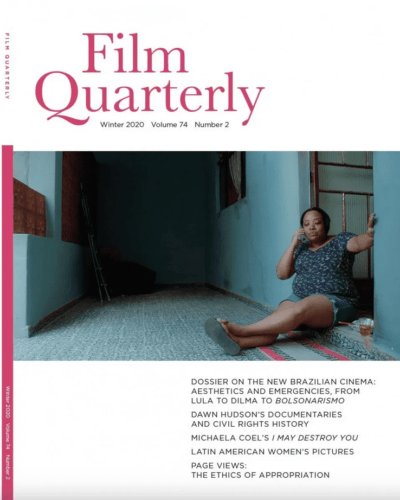
I’m in great company in the new issue of Film Quarterly, which has a dossier on Brazilian cinema edited by B. Ruby Rich and João Luiz Vieira, available for subscribers and scholars with institutional access. My article is titled “The Monstrification of Underdevelopment in Contemporary Brazilian Cinema: Ava Yvy Vera and Seven Years in May,” and you may download it here. The article articulates how two recent Brazilian medium-length films challenge the category of the “hybrid film,” incorporating reenactment to recompose invisibilized routines of institutionalized oppression. In Seven Years in May, Affonso Uchôa (Araby; The Hidden Tiger) uses collaborative methods to render visible the structure of mass incarceration in Minas Gerais. Shot with a group of young men in Contagem, the film is a tryptic where each part employs a different mode of narrative reconstruction. Directed by a group of first-time Guarani-Kaiowá filmmakers, Ava Yvy Vera retells the murder of their leader, Nisio Gomes, by forty masked gunmen in 2011. The film uses reenactment to infiltrate the present with the past, reviving Gomes through the palpability of his absence. In both cases, aesthetic choices disturb the legibility of events, questioning the authoritative inclination of narrative clarity in both fiction and documentary, as well as the glacial category of the hybrid film.






Leave a Reply